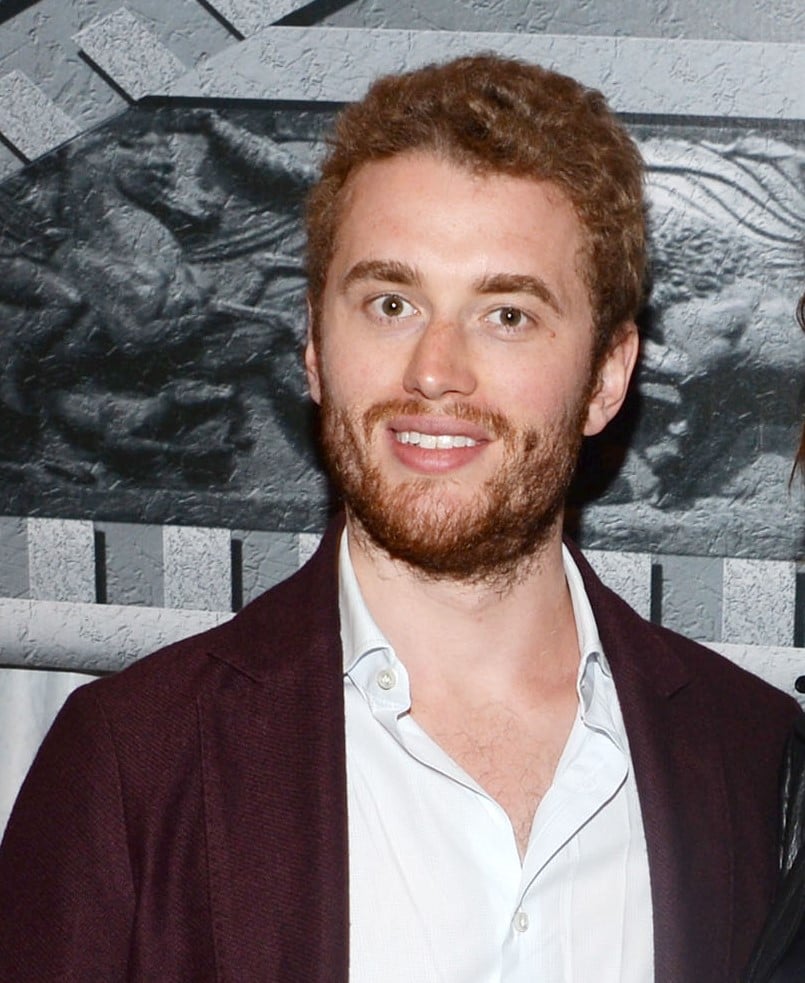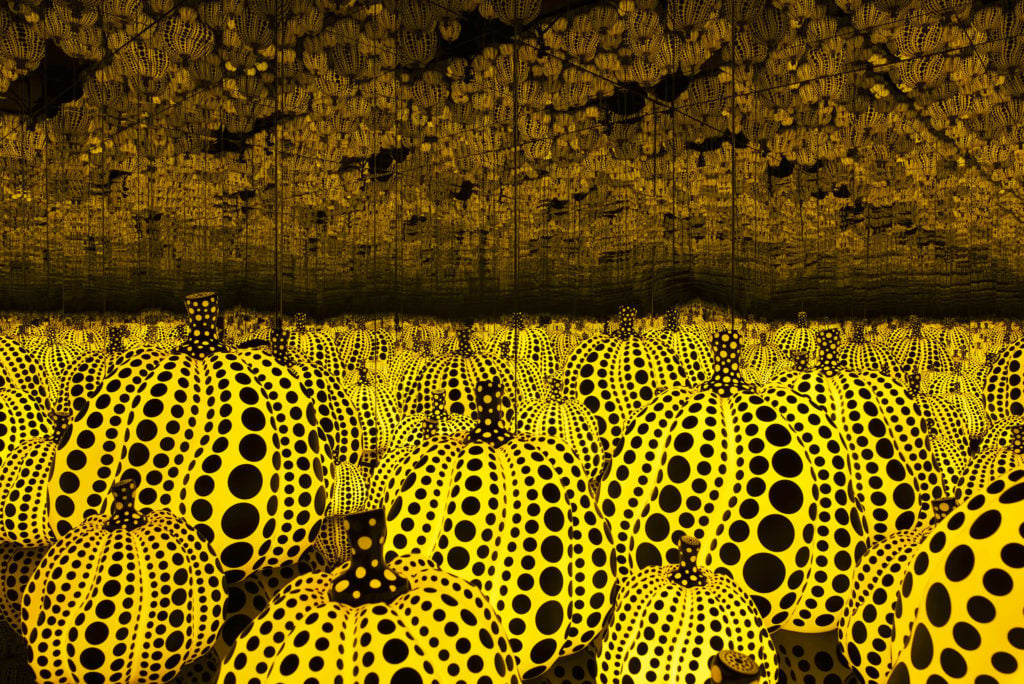Law & Politics
Saudi Arabia Has Joined a Lawsuit Against Disgraced Dealer Inigo Philbrick, Claiming He Sold Them a Kusama Installation He Didn’t Own
Who really owns the multimillion-dollar Yayoi Kusama 'Mirror Room'?

Who really owns the multimillion-dollar Yayoi Kusama 'Mirror Room'?

Eileen Kinsella

The Saudi Arabian government is joining the international legal fight against disgraced art dealer Inigo Philbrick.
An entity known as MVCA in Riyadh, Saudi Arabia, which is connected to the collection of the Royal Commission for Al-Ula and Crown Prince Mohammed bin Salman, according to Bloomberg, has retained an attorney to represent its interests as a defendant in an existing Miami lawsuit against Philbrick.
MVCA bought a major Yayoi Kusama installation, All The Eternal Love I Have for Pumpkins (2016), in April of 2019 and loaned it to the Institute of Contemporary Art, Miami later that year, according to an October report in Bloomberg, which cited sources familiar with the purchase.
The problem? The original owners of the Kusama didn’t know that their partner and co-owner, Philbrick, had sold the work to MVCA from under them.
The Kusama installation is now one of nine works named in a bombshell lawsuit filed against Philbrick last fall by the Berlin-based finance company Fine Art Partners, run by principals David Tümpel and Loretta Würtenburger, seeking the return of the works, worth an estimated $14 million.
Attorneys for MVCA, the Royal Commission, and Fine Art Partners did not respond to requests for comment.

Yayoi Kusama, All the Eternal Love I Have for the Pumpkins, detail (2016). Courtesy Ota Fine Arts, Tokyo/Singapore and Victoria Miro, London. © Yayoi Kusama.
For years, Philbrick and Fine Art Partners had an art-flipping arrangement where they would buy key works by blue chip artists—including Wade Guyton, Donald Judd, Rudolf Stingel, and Christopher Wool—hold them for several years, and then resell them and split the profits according to prearranged percentages.
According to their complaint, Philbrick bought the Kusama on the group’s behalf in September 2017 for $3.3 million with the understanding that he would resell it for a profit—a target price of $5 million is named on the agreement, with both sides splitting the profit. It is not clear if the Royal Commission ultimately paid that $5 million target price.
The contract was written in accordance with German laws, so it remains to be seen how that will play out in a US court.
Even as Tümpel became increasingly frustrated over the course of 2019 over delayed or unremitted funds, Fine Art Partners seemingly had no idea that Philbrick had already sold Kusama’s Pumpkin installation out from under them. Roughly five months after the purported sale to Saudi Arabia, in a September 2019 email responding to concerns, Philbrick told Tümpel the Miami exhibition could help attract a buyer:
“We are preparing the press launch for the Pumpkin Room, which will go into soft view for trustees and other potential funders on the 23rd, in advance of a public launch on October 1st. The presentation is being coordinated with an international PR campaign, which should bring us into contact with a number of potential buyers… To my knowledge this is the first time a mirror room has been presented in a public context that is not either primary market or already in a museum collection.”
But soon thereafter, the owners learned that Philbrick had already sold the Kusama, and filed their lawsuit against him.
In late January, as the Kusama show was nearing its end, a Miami-Dade judge issued an injunction stipulating that the artwork must remain in Miami as the case ran its course, according to a report in ARTnews at the time.
After the show’s run, the installation was to be broken down and disassembled. Fine Art Partners had said in a prior filing that it feared MVCA might remove the work from Florida soon after the show ended. Kusama’s infinity room installations are known to be extraordinarily complicated when it comes to installing and deinstalling.
The current whereabouts of the Pumpkin installation are unknown. An art storage company spokesperson in Miami who did not want to be identified, confirmed to Artnet News that the empty crates used to initially ship the work to Florida remain at the warehouse where Philbrick stored them through the run of the Miami show.
Late last month, Artnet News learned that the US Department of Justice is also investigating the dealer, according to four sources who did business with Philbrick or are involved in legal proceedings against him.
At least two companies that provided art support services for Philbrick over the past several years confirmed that they received grand jury subpoenas, indicating a criminal investigation, from the Department of Justice in recent months, asking the companies to supply all records related to business transactions with Philbrick.
Since last fall, Philbrick, who has since vanished, has been targeted by former clients who claim he sold the same works to multiple people and defaulted on loans he secured using art he didn’t own as collateral. Now, disgruntled former business associates are trying to seize his personal assets, which filings suggest could amount to as much as $70 million, as well as $150 million from his business.
The filing that MVCA attached to the Fine Art Partners lawsuit does not mention the specific Kusama artwork nor the nature of its involvement beyond that it is a defendant. But there is little doubt the two entities are battling over ownership rights to the highly-prized, seven-figure Kusama pumpkins.